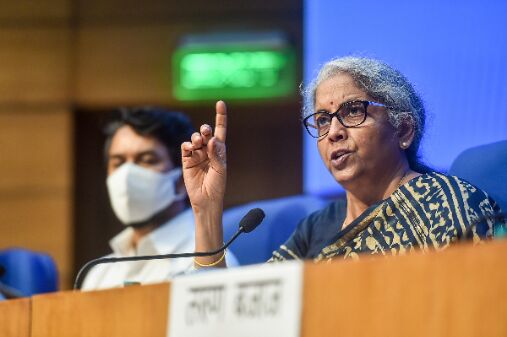Late but welcome

The 44th GST council meeting has finally come up with tax reductions for Covid essentials — a good step that could have been better had it come earlier. The tax reductions, once they come into force, will certainly add to the relief of people who are coming out of the worst days of the pandemic. After the 43rd meeting of GST Council on May 28, there had been apprehensive voices as, apart from the constitution of the Group of Ministers (GoM) to come up with its recommendation within a stipulated time (June 8), there was not much tangible provisioning on the Covid front. Now, as the Council has agreed to most of the suggestions made by the GoM, apprehensions must be largely addressed. The tax reductions in Covid-related essentials are clubbed in four categories — medicines; oxygen, oxygen generation equipment and related medical devices; testing kits and machines and other COVID-19 relief materials. The tax rates on most of the total of 18 essentials covered under these categories have been slashed to five per cent. Tax rates for ambulances have been cut from 28 per cent to 12 per cent and that of black fungus medicines — Tocilizumab and Amphotericin B have been slashed to nil. Earlier these rates were in the range of 5 per cent to 28 per cent. The rate on vaccines will be retained at five per cent. However, hushed tones of acrimony and discontentment still persist in political circles. Opposition states leaders have put forward reservations that their suggestion of zero-rating or exemption for Covid essentials have not been taken into account. While the Congress leaders expressed publicly their dissatisfaction on the 'exclusion' of ministers from Congress-ruled states in the GoM, the West Bengal Finance Minister complained of his voice being muzzled. These leaders are well within their rights to express their reservations. But, at the same time, there is a need to distinguish between critical opposition and acrimonious opposition. Acrimony is well-suited in political battles but, when it comes to policymaking, the critical aspect has to take precedence — needless to say, it becomes more so important in this tough time. There are two ill effects of an acrimonious approach: one, it may present unnecessary hindrance for the ruling party (hindrance resulting from criticism is welcome but not from acrimony) and, two, it also diverts the opposition itself from the act of criticism. The role of opposition becomes equally important with that of the government when the entire nation is lingering under the dark phase like the present. The strength of opposition doesn't come from mud-slinging. This is nowhere to suggest that the GST Council provisions are without drawbacks, and there is always a scope of something better. In response to the allegation of 'muzzling of voice', the Minister of State for Finance said that the leader apparently did not had a stable VC connection. Further, the decision to not go for a zero-rating has been justified as the absolute exemption might disrupt the input tax credit chain which could hinder the production process. A demand for a more extended timeline for the provisions was reiterated by the opposition. Given the situation at hand, it seemed a viable option. The present timeline is up to September 30 against the GoM recommendation of August. Apart from the justifications provided for the provisions, the government should further allay the concerns raised by opposition leaders to the extent of their satisfaction — a more representative composition of groups and committees be made in future. Though coming quite late, the provisions still hold great significance given that the third wave is expected. Proper implementation of tax reduction provisions could incentivise producers and help put forward a resilient structure in place. Of course, the provisions will provide immediate respite to people at large — the greatest benefit. On the front of taxation of Covid essentials, the government has made a start; the opposition should now play its part by having a critical eye on the implementation process.



